#rumeli fortress
Text
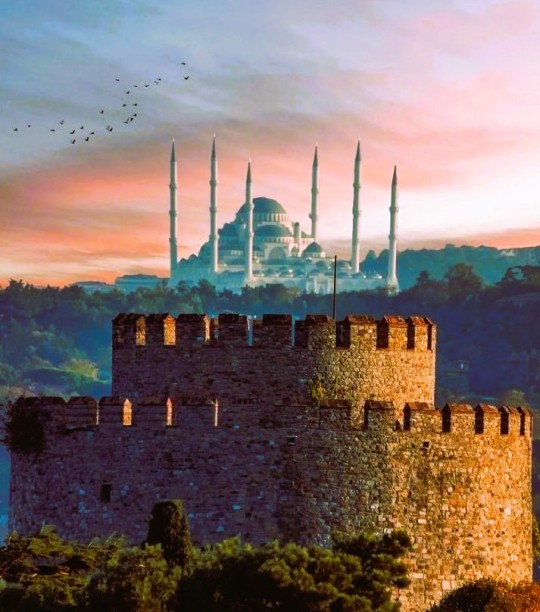
Rumeli Fortress, Istanbul, Turkey: Rumelihisarı or Boğazkesen Fortress is a medieval Ottoman fortress located in Istanbul, Turkey, on a series of hills on the European banks of the Bosphorus. The fortress also lends its name to the immediate neighborhood around it in the city's Sarıyer district. Wikipedia
49 notes
·
View notes
Text
Rumelihisari, Istanbul, Türkiye
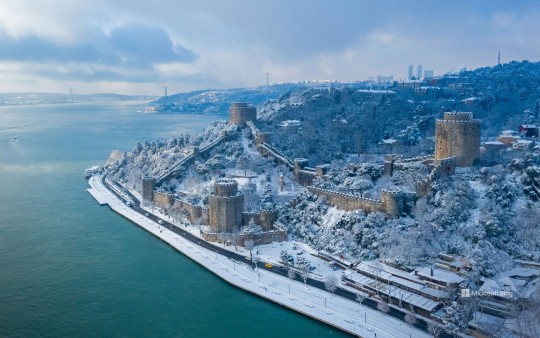
Though Türkiye is considered a warm Mediterranean country, snow occasionally falls here. This winter dusting of Türkiye's largest city Istanbul highlights the beauty of Rumelihisari in the centre of this image. The structure, also known as Rumeli Fortress, was built in the 15th century by an Ottoman sultan to move naval traffic through the narrow Bosporus Strait. The Bosporus connects the Sea of Marmara to the Black Sea, separating Istanbul into what are often referred to as its “European side” and “Asian side”. Today, the fortress serves as a museum and concert venue. While the place has changed over the centuries, the view hasn’t.
0 notes
Text
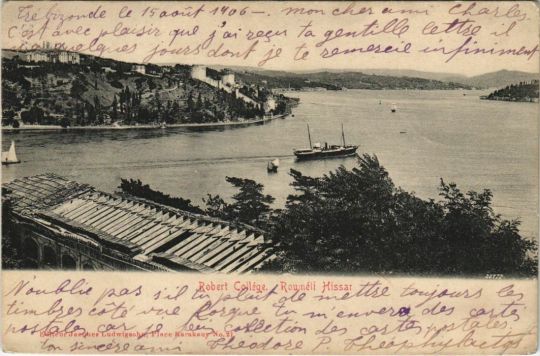
Robert College and Rumeli Fortress in Istanbul, Turkey
Turkish vintage postcard, mailed in 1906 to Germany
#old#postcard#postkaart#germany#istanbul#vintage#briefkaart#postal#college#ansichtskarte#ephemera#turkey#photography#photo#1906#postkarte#tarjeta#robert college#turkish#mailed#rumeli#historic#sepia#rumeli fortress#robert#fortress#carte postale
4 notes
·
View notes
Text
May 29th
On this day,
Constantinople was conquered by Ottoman Sultan Mehmed II (ruled 1444-1446 and 1451-1481), after two months of siege (April 6th to May 29th), thus marking the end of the Roman Empire.
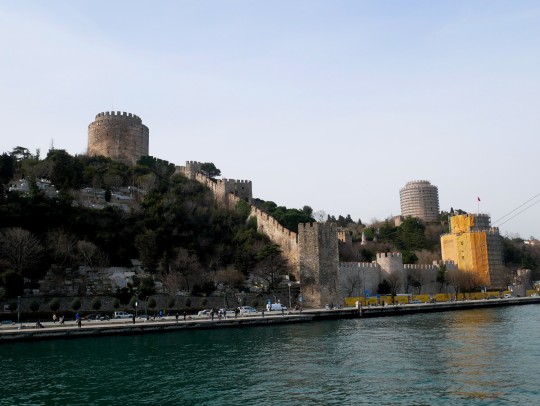
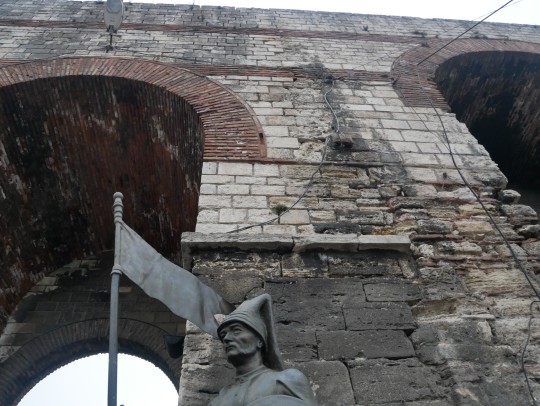

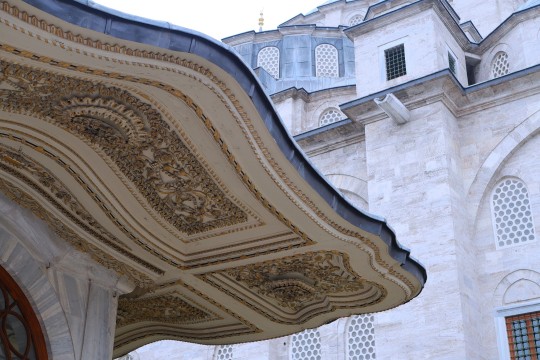
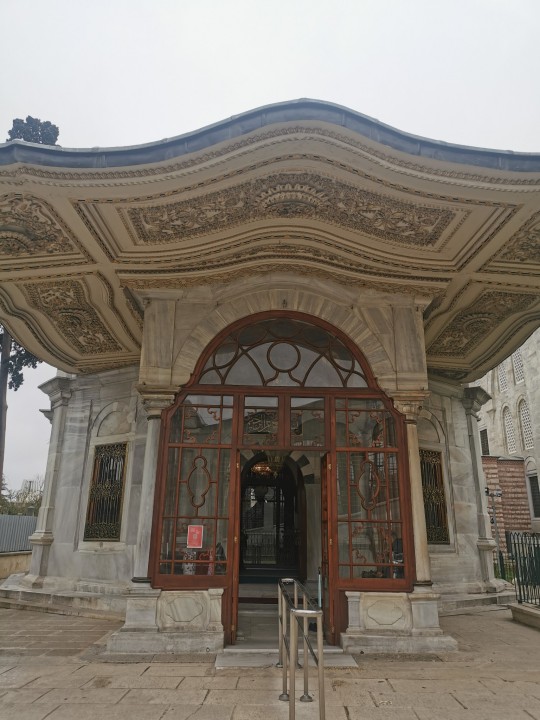
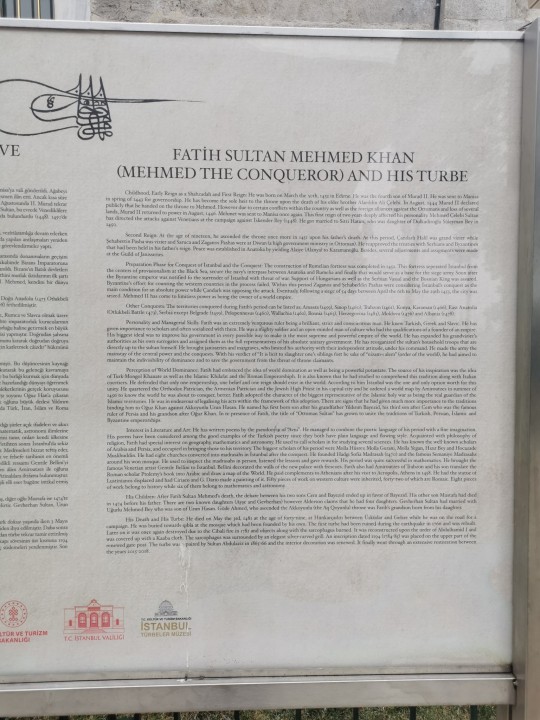
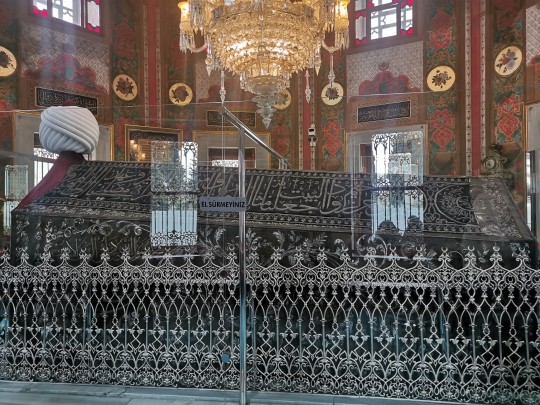
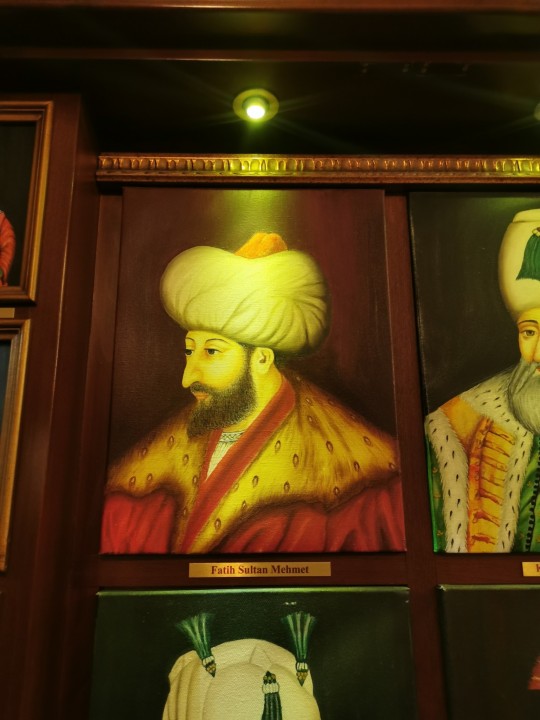
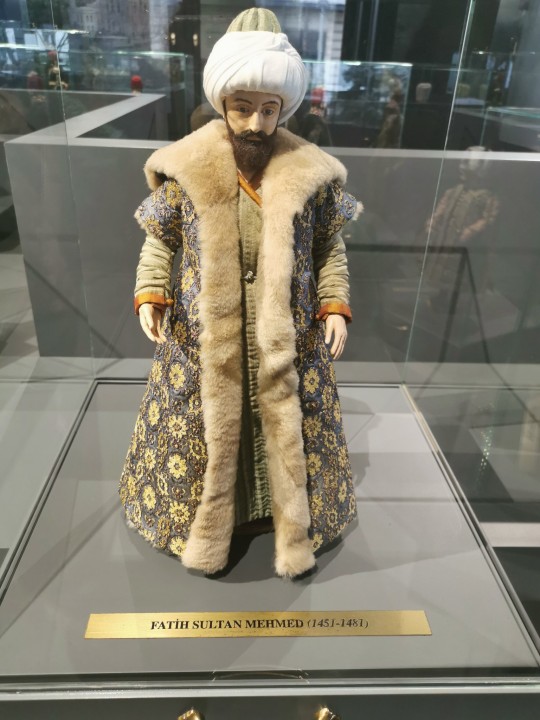
(1.Rumeli Hisarı fortress; 2&3.Edirne Gate and walls of Constantinople; 4-7. Türbe of Fatih Sultan Mehmed and Fatih Camii; 8. Portrait of Fatih Sultan Mehmed in Çağaloğlu Hamam, Istanbul; 9. Miniature of Fatih Sultan Mehmed in the Hanim Sultanlar Müzesi of Üsküdar) - photos by me.
14 notes
·
View notes
Text
Marhaba, Saudi explorers! 🇸🇦✨
Immerse yourself in a captivating exploration of Turkey, commencing at Istanbul's historic Rumeli Fortress. Secure your Turkey eVisa for a worry-free adventure. Get ready for an experience that weaves history and culture into an unforgettable tapestry! 🏰🌍
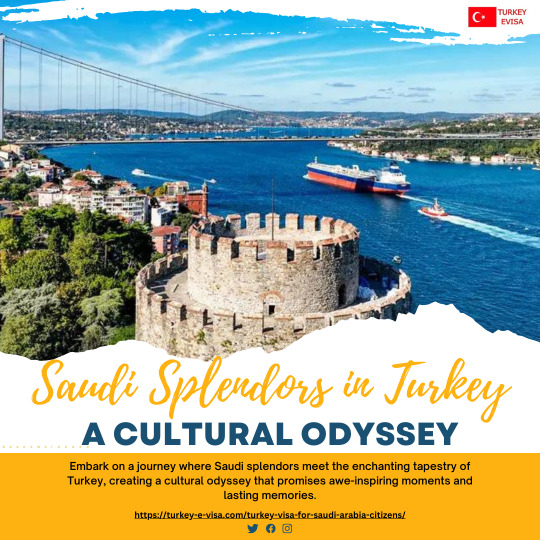
#ExploreTurkey#turkishjourney#RumeliFortress#TurkeyExploration#CulturalOdyssey#travelwithhistory#TurkeyEVisa#discoveristanbul#historictravel#marhabaturkey#captivatingjourney#tapestryofculture#UnforgettableExperiences#sauditravelers#istanbulhistory#CulturalImmersion#travelinspiration#ExploreWithPassion#evisa#turkey
1 note
·
View note
Photo

Rumelihisari, Bosporus Strait, Istanbul, Türkiye #instapic #instaphoto #instapicture #instaworld #instanature #instadaily #instamountains #instasea #instasky #instaclouds #instawinter #instasnow #instafortress #ig_turkey #world #nature #mountains #sea #clouds #winter #snow #fortress #instagram #nofilter #turkey #picoftheday #pictureoftheday #followme (at Rumeli Hisar, Istanbul, Turkey) https://www.instagram.com/p/CnjzTQRM8p2/?igshid=NGJjMDIxMWI=
#instapic#instaphoto#instapicture#instaworld#instanature#instadaily#instamountains#instasea#instasky#instaclouds#instawinter#instasnow#instafortress#ig_turkey#world#nature#mountains#sea#clouds#winter#snow#fortress#instagram#nofilter#turkey#picoftheday#pictureoftheday#followme
0 notes
Text
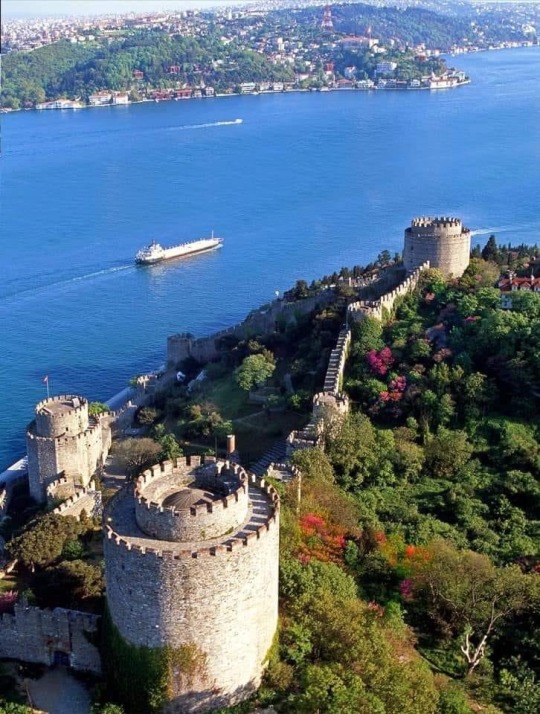
Rumeli Fortress, Istanbul, Turkey 🏰 🇹🇷
Rumeli Fortress (Rumeli Hisarı) is an Ottoman fortress dating to 1452. It was built by Ottoman sultan Mehmed II (Mehmed the Conqueror) in preparation for the conquest of Constantinople. The castle is situated on the shore of the Bosphorus Strait at its narrowest point with approximately 660 meters. It is just opposite of Anadolu Castle (Anadolu Hisarı) which is another Ottoman castle built-in 1394 by Bayezid I. Both Anadolu Castle and Rumeli Castle were built by Ottoman sultans in order to prevent military and economic aid to the Byzantine Empire coming from the north, Black Sea. Thus, the Bosphorus strait connects the Black Sea with the Marmara Sea.
Rumeli Fortress consists of three large towers, one small tower, and thirteen smaller towers, which all are in very good condition. The architect of the castle was architect Müslihiddin and by the time it was built, its name was Boğazkesen (Strait Cutter).
After the conquest of Constantinople in 1453, the castle lost its military importance and served as a customs checkpoint until the seventeenth century and then as a prison until the nineteenth century. In the nineteenth century, a neighborhood was formed inside the castle with its houses, mosques, shops, and so on. However, this neighborhood was destroyed in the 1950s. Since 1960 the Rumeli Fortress functioned as a museum and this magnificent castle is open to the public as an open-air museum.
0 notes
Photo
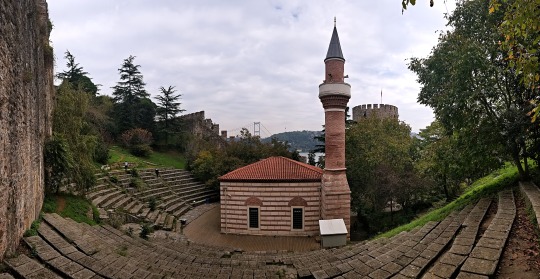
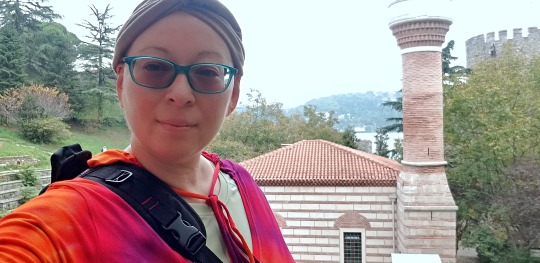
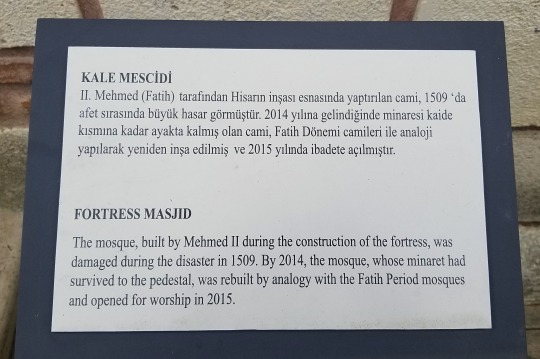
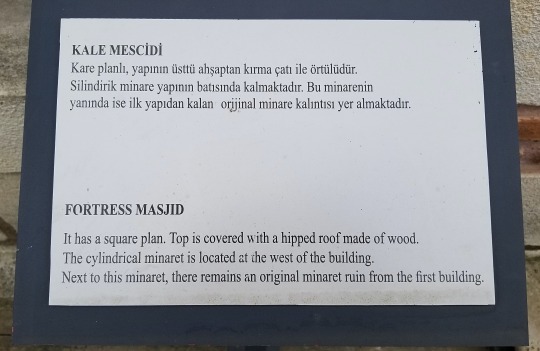
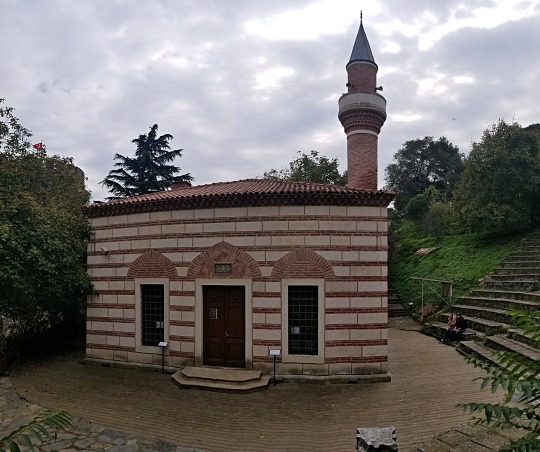

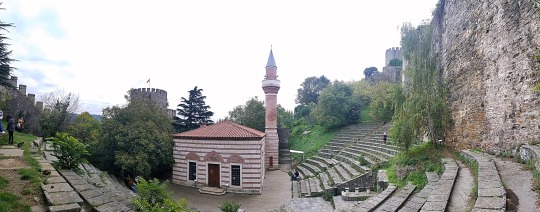
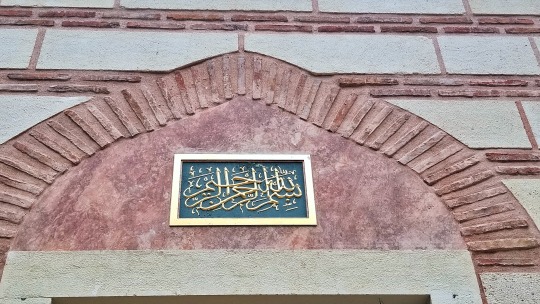
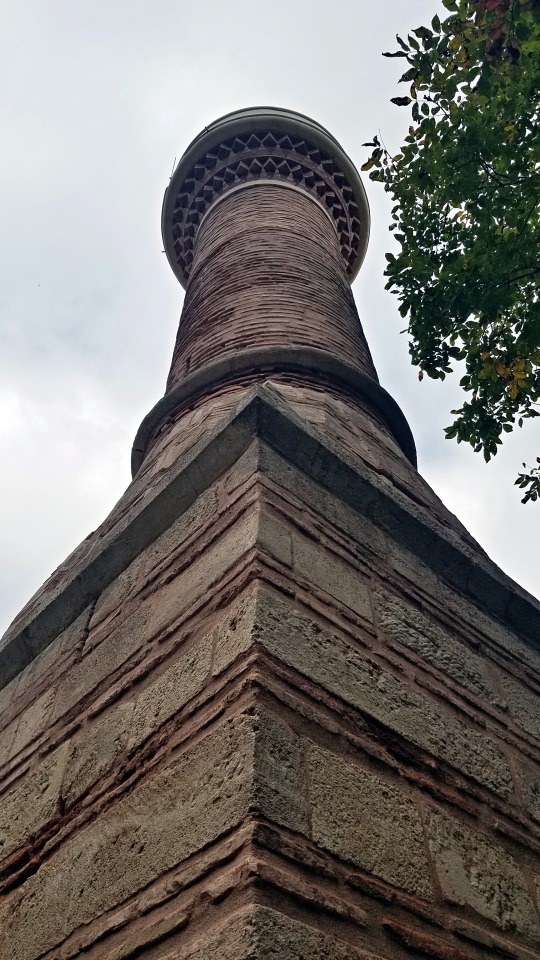
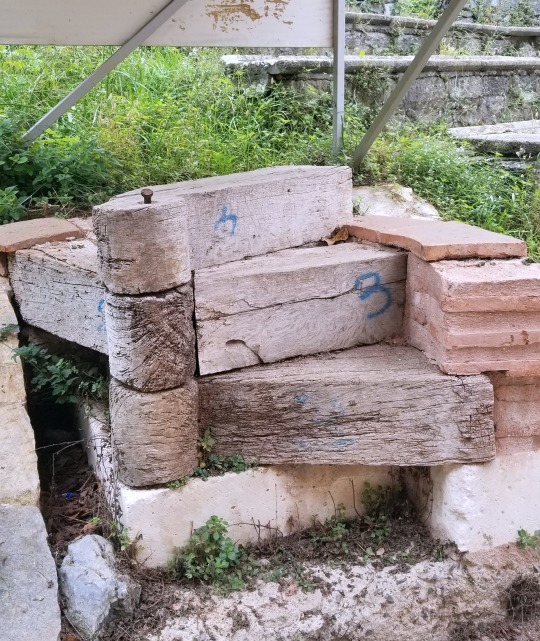
2020 November 03 - istanbul
#mosque#rumelihisari#rumeli fortress#history#military history#fortress#conquest of constantinople#ottoman empire#istasnbul#bosporus strait#turkey#travel#minaret#selfie#panorama#mehmed II
10 notes
·
View notes
Photo

The Bosphorus at the fortress of Rumeli Hisari by Vittorio Amadeo, 5th Count of Preziosi (Maltese, 1816-1882).
#istanbul#tarih#history#bosphorus#fortress#rumeli hisari#vittorio amadeo#5th count of preziosi#art#sanat#ottoman period
7 notes
·
View notes
Photo
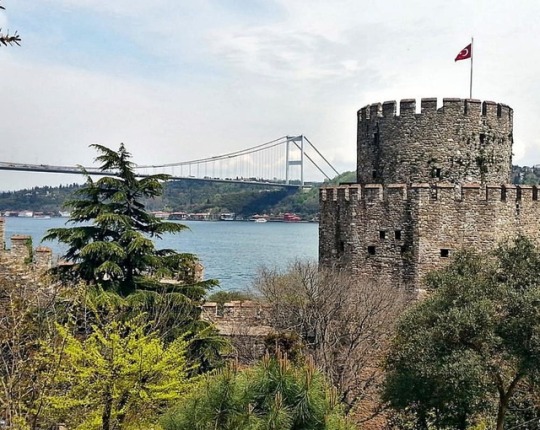
Rumeli Fortress, Istanbul...🌍☺ . . www.gezenpati.com 🐾 . . . . . #gezenpati #istanbul #turkey🇹🇷 #attraction #fortress #bosphorus #bogaz #bogazici #rumeli #history @beautifuldestinations @lonelyplanet @natgeotravel @earthfocus @folkmagazine @theglobewanderer @roamtheplanet @view @wonderful_places @travelchannel #natgeo #natgeotravel #neverstopexploring #photography #travelandleisure #traveltheglobe #travelphotography #traveladdict #traveling #wanderlust #holiday #instatravel #igtravel #ilovetravel #instavacation #instago #instagood #lp #livetravelchannel (at Rumeli Hisarı) https://www.instagram.com/p/BzflbFxpbdT/?igshid=tx9hpfqzbj3z
#gezenpati#istanbul#turkey🇹🇷#attraction#fortress#bosphorus#bogaz#bogazici#rumeli#history#natgeo#natgeotravel#neverstopexploring#photography#travelandleisure#traveltheglobe#travelphotography#traveladdict#traveling#wanderlust#holiday#instatravel#igtravel#ilovetravel#instavacation#instago#instagood#lp#livetravelchannel
0 notes
Text
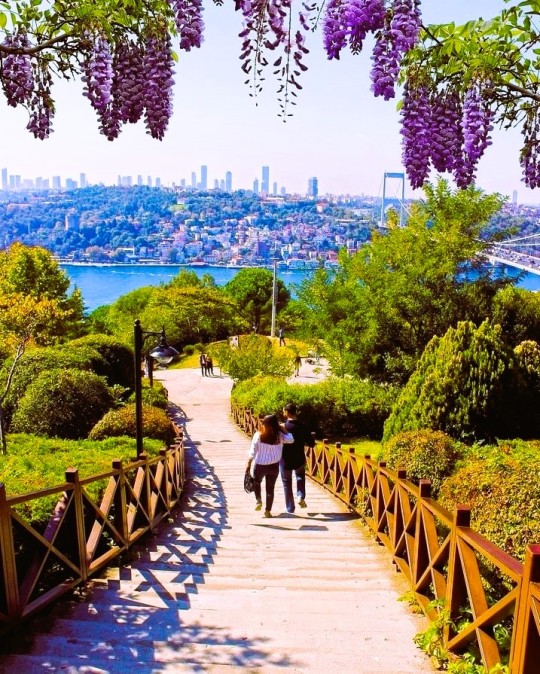
Otagtepe Park, Istanbul, Turkey: This is an excellent green park with one of the best free viewpoints of the Bosphorus. Out of center, but definitely worth the visit. Also almost across from Rumeli fortress, which is a major attraction
33 notes
·
View notes
Text
The Marble Emperor
**DISCLAIMER: This short story was originally written back in 2014 for a college writing class.**
*May 28th, 1453*
Byzantine Emperor Constantine XI Dragaš Palaiologos knelt on the cold marble floor of the Hagia Sophia, the church at the center of Constantinople, with his head bowed and his eyes closed in prayer.
“To surrender the city to you is beyond my authority or anyone else's who lives in it, for all of us, after taking the mutual decision, shall die out of free will without sparing our lives,” he had growled as he threw the Turkish delegation out.
His father Manuel II, his mother Helena, and his older brother John VIII had prepared Constantine his entire life for the possibility that the Ottomans would one day try to destroy the Empire. (If they were here, they would know what to do, he thought solemnly.) Their stories of the centuries of Muslim atrocities against Christians horrified him as a child. And he suffered a bitter military loss when the Turks drove his armies from an attempted conquest of Athens back to Corinth in 1446. Therefore, from the moment he took the throne in 1449, he undertook to strengthen the city and spill their blood fighting for it. But now those very words of defiance came back to bite him like vipers that now hissed with the accusation, What empire is there left to destroy? What empire indeed? The Byzantines were the eastern, Greek speaking descendants of the Roman Empire, which once had uncontested dominion from Britain to Persia. After ten centuries of weathering attacks from barbarians, Muslims, and Christians alike, however, the Byzantines now only ruled a small portion of the southernmost part of Greece called the Despotate of the Morea (astride what used to be Sparta), a handful of Aegean islands, and the immediate environs of Constantinople.
And yet, Constantine reflected, he was not truly alone in this fight. Kneeling in prayer beside him was Giovanni Gustiniani. Constantine had joked to Giovanni during a rare break in the siege that he was the only good man to ever come out of Genoa. But it was true. The Italian had sailed to Constantinople’s aid with seven hundred Genoese mercenaries. But far more importantly, he quickly became Constantine’s protostrator (or second in command) and made sure the ragtag Byzantine, Genoese, and Venetian soldiers remained unified and could effectively defend the walls. Without his help, the city would not have held out for as long as it had so far.
Right now, though, Giovanni looked worried as he turned to Constantine. Constantine did his best to not show the fear that this look caused to spread through his whole body. If Giovanni was nervous, then surely something must be wrong. But Constantine dared not show his trepidation. He certainly could not afford to appear weak in front of the throng of thousands of civilian refugees who had been praying with them. They now took shelter in the center of this cathedral that remained strong for them and that housed the priests who fed them with meager stores of bread, even as paint from the mosaics peeled off and critical masonry in the walls started to show cracks and strain. It seemed to the Emperor that his subjects were also barely holding themselves together, especially recently.
On the night of May 22nd, when the Moon rose, it was partially eclipsed by the Earth's shadow and its light glowed red like blood. This already caused enough panic for Constantine and what remained of his government in a city that had been besieged for a month to have to deal with. To make things worse, rumors flew around that there was a prophecy that the city would fall after a blood moon. Then four days later, the entire city was blanketed by a large, thick, and choking cloud of black fog. When the fog lifted, there appeared around the dome of the Hagia Sophia a strange multicolored light, which some hoped came from the fires of foreign armies come to relieve the city. Most, however, despaired, wailing throughout the crumbling streets that the Holy Spirit had abandoned the capital to the heathens.
Under these circumstances, Constantine could not blame anyone for panicking. He almost envied that they were able to scream.
"Is there something that troubles you, my friend?" he asked calmly, placing a large, weary hand on the Italian captain's shoulder.
"I don't know quite how to say this, my lord..."
"Please. We have known each other long enough, Giovanni. It is Constantine."
"Alright- Constantine," Giovanni stammered quietly, hoping that he wasn't disturbing the Latin and Greek churchmen and the Imperial nobility who sat immediately behind him as the service continued. "I am afraid I must beg leave to attend to the walls. It appears that the Turks are concentrating their cannon fire on the Blachernae." These were the most weakened walls, and were situated in the northwest of the city.
“I will excuse you and ask for God's forgiveness on your behalf if He should be offended by this," Constantine nodded.
As Giovanni attempted to slink towards the exit without arousing the panic of the commoners or the offended huffs of the churchmen, Constantine wished that he could leave. He was, of course, a very devout Christian, and it was important that the Emperor remain implacably, solemnly beseeching of God's mercy at a time like this. But now he could very well feel the weight of the sword on his right hip and the shield leaning on his left arm, and he knew they would soon be needed.
*****
*Rumeli Hisari, Ottoman Fortress Just North of Constantinople*
"Are you sure that it will not break this time?" Sultan Mehmed shouted at Orban the Dacian, his Hungarian gunsmith. He did this not out of any anger towards the other man, but simply in order for his words to be heard over the constant gunfire.
"Yes, my lord," Orban bowed. "I have made several small but important improvements to the design since the last time we fired it."
"Excellent, my friend," Mehmed replied.
However, the Sultan made a careful mental note to keep an eye on Orban. He had initially offered to work for the Byzantines. It was only because his asking price was too high and because the Byzantines did not have the resources necessary for what he was asking to create them that he had changed sides, and that would pose a problem.
“When will it be ready?"
Orban's blond mustache trembled before he said, "I- I have the full team of sixty oxen and four hundred men rolling it into position in front of the fort even as we speak."
"Good," Mehmed smiled, something which Orban had rarely seen.
Orban then enthusiastically cried, "I will go down there and personally make sure that it is aimed and fired properly. Where would you like me to aim it?"
"See how the other cannons are concentrating their fire at the northwest corner?" Mehmed asked and then pointed.
Orban nodded and immediately rushed down and made preparations to fire upon the Blachernae. At whatever price his loyalty may have been bought to start with, with that gesture Mehmed was now confident that Orban would remain on his side.
When he came to the throne two years earlier after the death of his father, Sultan Murad II, no one would have ever thought that Mehmed, then only nineteen, would ever inspire any kind of loyalty or do anything great. Even Mehmed himself had not been confident in himself when he took the throne.
He had done it before, ruling for a short time when his father abdicated in 1444. But he was only twelve at the time. Frustrated when his teachers assumed he could not do anything competently, took power out from under him, and then nearly ran the entire nation into the ground, Mehmed had had to supplicate his father to return to the throne and resented being lectured by the old fool afterwards. Thereafter father and son bitterly resented each other.
Mehmed had not wanted to have to go through it all again, and almost cursed Allah for taking his father away and making him do this.
But as his father lay dying in 1451, he had summoned young Mehmed into his chambers and had him sit beside him on the bed and read from one of the hadiths, a report of the deeds and sayings of the Prophet Muhammad (Peace Be Upon Him). In it he said, "Verily you shall conquer Constantinople. What a wonderful leader will he be, and what a wonderful army will that army be!"
"I know that you can do what I could not, my son," Sultan Murad coughed, and then closed his eyes and drifted into Paradise.
His teacher Ak Şemseddin had drilled into him from the moment he could read that it was his Islamic duty to capture Constantinople. And now, as he wept for the loss of his father, Mehmed was reminded of that. He knew what his first act in office must be, and knew that the Christian and Muslim enemies that surrounded him would never take him seriously unless he did this. Therefore, from the moment he had taken the throne, Mehmed prepared his armies to crush Constantinople. In doing so, he would succeed where Muslim armies had failed since 678. In the process he would eliminate a small but annoying foe in the middle of his country, establish for it a natural capital, and turn his Sultanate into an heir to the glory of Rome herself.
Of course, since he was a reasonable man, he had first offered a way for Byzantine "Emperor" Constantine to step down without bloodshed. He didn’t expect Constantine would *agree*, but all this blood was now on the Greek.
"Fire!" the Sultan cried once Orban had positioned the cannon correctly. It was now midnight on the morning of May 29th, and the Sultan now prayed that this would mark the final assault that would deliver the city to himself, his people, and to Allah.
No sooner had the fuse been lit then the hiss and pop of the fire dancing on the edges of the rope that fed itself into the monstrous bronze beast echoed within its cavernous belly. To some who were on the ground, it was almost was as if this cannon, which was heavier than several ships put together, was an unholy djinn taking a deep inhalation before breathing out terrible fire upon its enemies. And when it belched its black smoke, wheels taller than two men standing on top of one another nearly buckled from the recoil as the ball sailed across the Golden Horn, the small inlet that formed the northern boundary of Constantinople.
Several soldiers immediately noticed another loud bang emerge from the metal dragon. But none of them remembered loading and firing it at all, which seemed odd. One went to take a closer look. By the time he heard another angry shout emerging from the cracks, however, an enraged fireball devoured him and spat out only ash in its wake. The frightened rabbits ran for their lives but it was already too late. Mehmed could not bear to watch the carnage below him. When the bloated weapon finally shuddered and died, he despaired to learn that was left of Orban had been incinerated in the blast and crushed by falling pieces of bronze as well.
Struggling to keep away tears so as not to panic those men who still lived and were dealing with the horror of seeing their mangled comrades, the Sultan's eyes followed the cannonball for a moment before he knelt on the fortress's walls and made this solemn prayer.
"Allah, if it be your will, bring Orban into Paradise and let his death not have been in vain. Bless our endeavor this night and deliver Constantinople unto us."
"What will you have me do, my lord?" the Commander of the Janissaries, the Empire's brave, elite soldiers, asked the Sultan.
"Assemble every man you have and prepare to attack!"
*****
"All of you, get away from the walls and take cover!" Giovanni cried. He was at the front of the line, waving with his sword and banging his shield to get the attention of those who were still manning the Blachernae guard posts at that moment.
Most saw his message and tried to escape by leaping away from the towers and onto piles of hay below. This did not work at all, but fortunately, when compared to those who were caught on the walls when the cannonball slammed into them, their deaths were swift and painless.
Giovanni squinted as his entire body and his suit of armor was coated in a thin layer of powdered limestone from the hole that had been punched through the city's defenses. And worse, mere moments seemed to pass before a horde of howling Turks streamed through the walls, seemingly endless. And not just any Turks.
Janissaries.
Brutal, merciless, and born only to kill and maim, these monstrous, gnarled mercenaries drove fear into the hearts of the defenders.
"Stand your ground!" Giovanni yelled. "For we will fight and die honorably and on our feet, as our Roman forefathers did before us!"
He did not get to say much more before a river of Turkish shields slammed against his own. The Italian leaned his shoulder into his shield to push back against them and stabbed his foes through whatever hole in their guard he could find, coating the cobblestones generously with their blood.
Just as Giovanni was about to say something further to rally the defenders to push the Turks back towards the breach in the wall, a crossbow bolt lodged itself in his throat and stifled the Emperor's friend forever. And as word of Giovanni's death spread around the ranks, the Byzantines and their foreign allies broke ranks and retreated now that the man who had single-handedly kept the Empire together was gone.
“Why are they retreating?" Emperor Constantine asked to himself with his hands folded behind his long purple robes, even though he already knew what the answer was.
"I do not know, my lord," one of the churchmen said.
"The Turks are pouring into the city like a river!" a man who used to be a merchant yelled. "We're doomed!"
"I just saw two priests disappear into the cathedral walls! God is punishing us up for our sins," a woman sobbed.
But then, even though Constantine was coming apart at the moment he knew the city was lost, the Emperor walked calmly through the teeming masses and said, "My friends, fellow Romans! Do not despair. For whatever happens this night, trust in our Lord and Savior, for he has said to us, 'Blessed are the poor in spirit, for theirs is the kingdom of heaven'."
With that, Constantine commanded the guards still inside to bolt the doors to the Hagia Sophia, quickly picked up his sword and shield, and ran through the city in full armor, fueled by adrenaline to meet with his men before they could completely retreat.
His robes were long and cumbersome and the trappings of what little of his Imperial office he had left now only served to slow him down. With that, he cried at the top of his lungs, "The city is fallen and I am still alive," tore them off so as to no longer distinguish himself from his soldiers, and charged into the fray with them. After that, no one saw Constantine again.
Some say even to this day that just at the moment of his death, an angel flew in and carried the beloved last Emperor of Rome away. Others say he left the battle, stood atop a platform overlooking the carnage, and wept before hanging himself.
From that moment on, he became the Marble Emperor, turned to stone and entombed underneath the city until he would awaken again in its hour of need. Simultaneously, legends grew that the two priests who disappeared into the walls of Hagia Sofia would reemerge when the city would be retaken by the soldiers of Christ.
*****
The great oak doors to the Hagia Sophia now leaned slackly against the rotting pillars of stone as the Sultan entered the passageway. It had only been three days since the Ottomans captured Constantinople and already his workers were busy painting over the mosaics of Mary with child with beautiful white Arabic lettering on top of a simple black background, as well as placing minarets at the tops of the towers. Within a month, his planners told him, the mosque would be renovated enough to allow for Friday prayers to be read.
Mehmed's soldiers had also been hard at work looting over the past three days, an enterprise that personally disgusted the young ruler. But this had to be allowed, if only for this limited amount of time, for soldiers on any side of a war these days were often a fickle bunch, prone to deserting if every little demand of theirs was not met. For instance, he had had to build Rumeli Hisari in the shape of the Arabic letters for Muhammad in order to keep morale up, and that had only lasted a week. (It hadn't hurt, however, that his name was styled the same way.)
The results of the three day looting period were almost too much for him to gaze upon. Elderly men who just days earlier had been praying for deliverance from the prophet Isa, who they called Jesus, were now stacked on wagons and preparing to be dumped into the Bosporus. Children were in shackles, about to be sold to slave markets as far as the Songhai in the heart of Africa. And women and young girls were weeping, their clothes in tatters.
He could do nothing about those whose freedom had already been lost, but now his voice boomed through the mosque,
"Henceforth, those who are still in hiding will not be harmed."
Hopefully, he thought, this would be the first step in beginning to rebuild the city to its former glory. Soon, he reasoned, it would become the glorious, shimmering golden crown of an Empire without end. It would welcome commerce from all over the world, shelter Muslim, Christian, and Jew, and become the greatest power the world had ever known. "The spider weaves the curtains in the palace of the Caesars and the owl calls the watches in the towers of Afrasiab," Mehmed had proclaimed when he first stepped into the city. Hopefully, that would not be the case for much longer.
8 notes
·
View notes
Text
Istanbul guide tours Secrets
>If you are on the lookout for a hugely rated tour operator which can be trustworthy and honest you may check TripAdvisor scores of nearby tour operators in Every vacation spot on earth and by considering the experience reviews of previous visitors you can make your determination with your vacation agency to create your tours.
Just from the Asian shore of Istanbul, Turkey's Princes Islands are a well known day journey for Istanbullus within the know. Relax like a neighborhood and escape the fast rate of Sultanahmet or Karakoy on this total-day tour to Büyükada, the most important island in the chain.
Consider a short vacation amongst the continents. Istanbul is the only metropolis that provides you this chance where Europe and Asia meet. Along with your Skilled tour guide, you will notice the highlights from the Bosphorus from your boat. Simply click to go through far more details.
Fish and Chips (Balık Ekmek) is a common street food items item in Turkish Avenue cuisine. This is a sandwich of the filet of fried or grilled fish served in addition to many veggies, inside of a bun of Turkish bread.
From The Site On our site you’ll get a chance to study a tiny bit more details on the individuals and concepts behind ToursByLocals. Far more importantly, you’ll get a chance to fulfill our guides, since they pop in frequently to offer travel strategies for their towns and cities.
See Istanbul from 3 various vantage details on this tour, which include a sightseeing cruise, panoramic tour and cable car or truck ride. Have a scenic cruise within the Bosphorus and admire top Istanbul attractions such as the Bosphorus Bridge and Rumeli Fortress within the water.
When you are searhing for an incredible Bosphorus day or evening out, don’t wanna read through the whole web page, trust our suggestions, save time and expense, than you can Be happy to check out the under fantastic worth for dollars Bosphorus cruises. Be aware that you choose to’ll get further 5% discount as staying our Web-site visitor.
We also use third-party cookies that help us analyze and understand how you utilize this Internet site. These cookies will probably be saved within your browser only with the consent. You even have the option to opt-out of such cookies. But opting outside of Many of these cookies may influence your browsing practical experience.
In lieu of driving about Istanbul all day long inside of a stuffy tour bus, uncover town’s attractiveness in model on this stress-free sunset cruise down the Bosphorus, the waterway that marks the border involving Asian Turkey and European Turkey.
Two weeks back I took a private Bosphorus cruise about the Zoe yacht. I’ve been living in Istanbul for over a decade now, so I’m no stranger to sailing the Istanbul strait.
Really terrific customer care I was aquiring a challenging time to rearrange Uber for 8 people from my hotel no Uber driver wanted to take us to that area the last minute Sunsets experienced named And organize a private shuttle to choose us from hotel to the yacht at no more charge
Find out about the princes of the Byzantine Empire who the moment relaxed on these islands as you take a horse-drawn carriage tour. Have private istanbul cruise at a fish cafe and enjoy free time to discover yourself, taking while in the beaches and historic web sites at your leisure before returning to Istanbul.
Then adhere to your guide through the Grand Bazaar, searching the shops of numerous distributors by having an assortment of textiles, jewellery, perfumes, spices plus much more. Your guide shares the prolonged record of Istanbul with all your tiny team, which is limited to 10 members to make sure a far more personal encounter.
Arguably the most popular historical attraction in town, you can expend upwards of an hour or so ready outside the house the Hagia Sophia to buy your ticket. Make the most of the limited time in Istanbul with skip-the-line admission.
1 note
·
View note
Photo
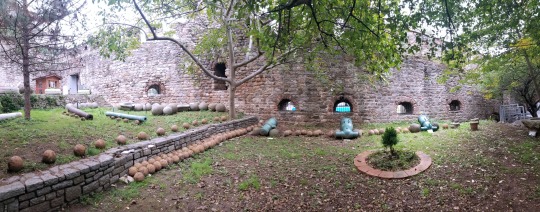
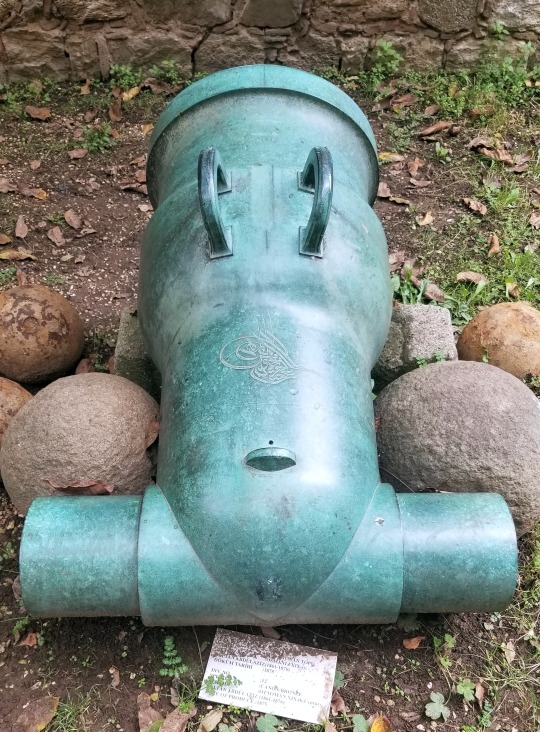
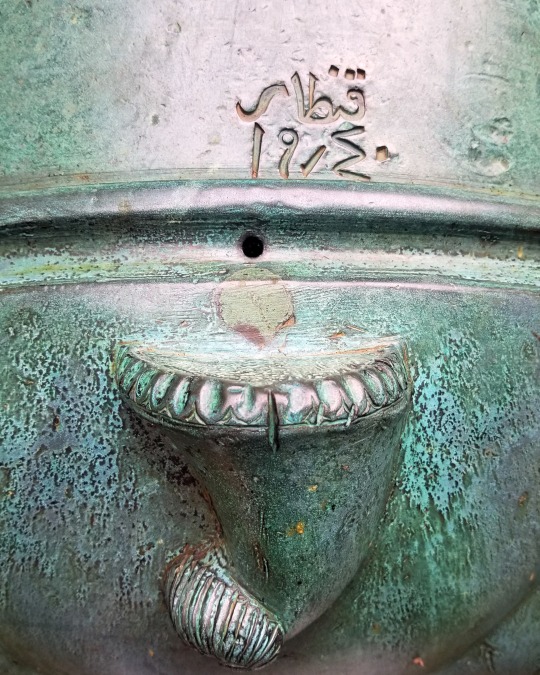
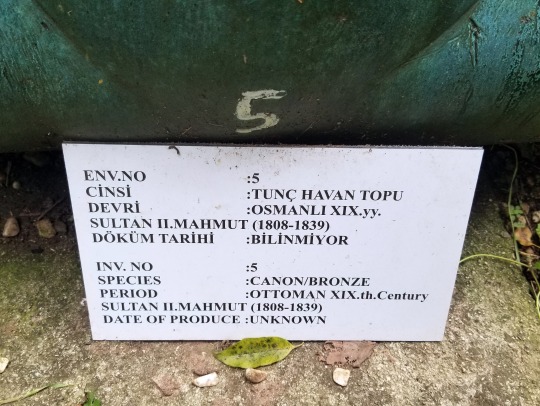
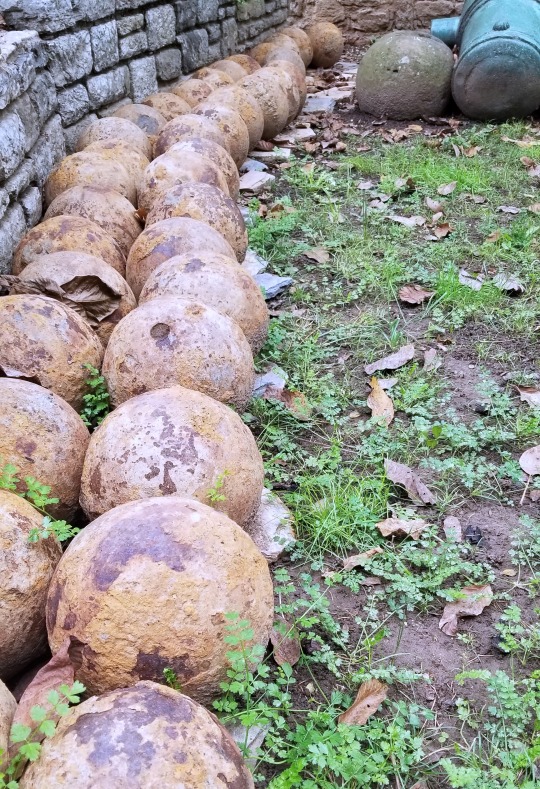
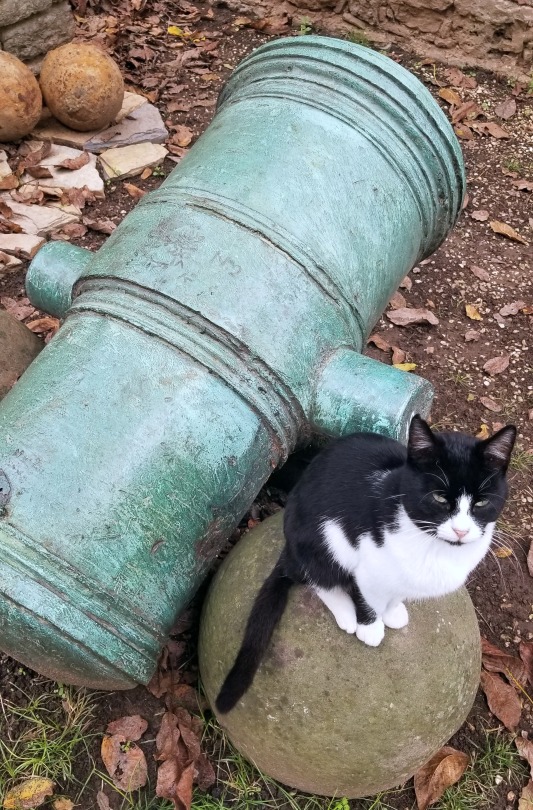
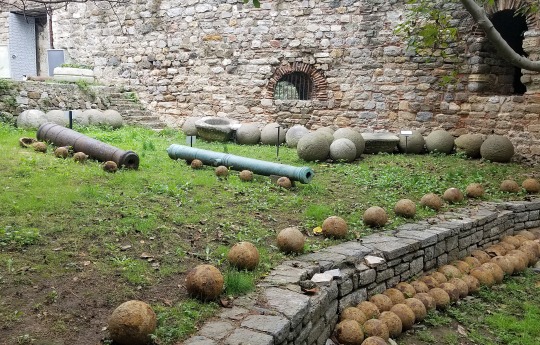
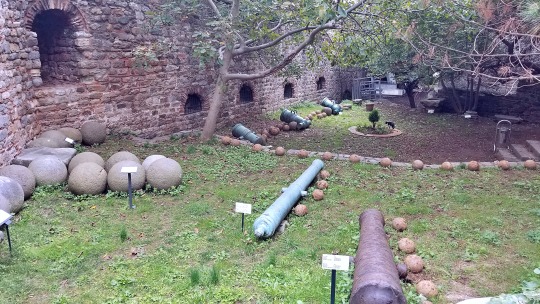
2020 November 03 - istanbul
#istanbul#travel#turkey#rumelihisari#rumeli fortress#fortress#history#military history#mehmed II#cannon#cannonballs#ottoman empire#conquest of constantinople#bosporus#bosporus strait
4 notes
·
View notes
Photo
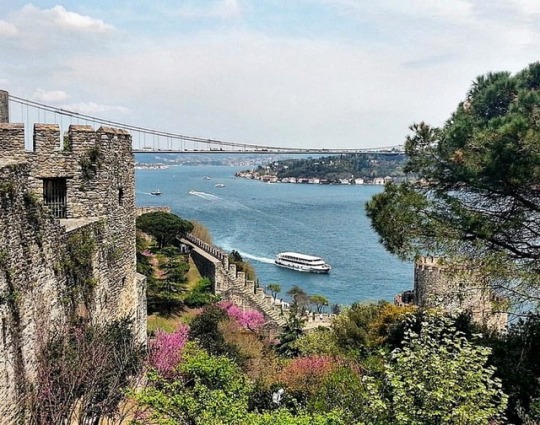
Rumeli Fortress, Istanbul...🌍☺ . . www.gezenpati.com 🐾 . . . . . #gezenpati #istanbul #turkey🇹🇷 #attraction #fortress #bosphorus #bogaz #bogazici #rumeli #history @awesome.earth @awesome_earthpix @aroundtheworldpix @beautifuldestinations @bbctravel @discoverychannel @earthpix @folkmagazine @theglobewanderer @roamtheplanet #awesomeearth #aroundtheworldpix #bdteam #beautifuldestinations #blog #BPMag #beautiful #blogger #discoverearth #dream_spots #earthpix #exploreeverything #earthfocus #earthofficial #exploretocreate #explorer #explore #folkmagazine #bbctravel #getaway (at Rumeli Hisarı) https://www.instagram.com/p/BzbgS_EJaua/?igshid=zmaqnhpv7fog
#gezenpati#istanbul#turkey🇹🇷#attraction#fortress#bosphorus#bogaz#bogazici#rumeli#history#awesomeearth#aroundtheworldpix#bdteam#beautifuldestinations#blog#bpmag#beautiful#blogger#discoverearth#dream_spots#earthpix#exploreeverything#earthfocus#earthofficial#exploretocreate#explorer#explore#folkmagazine#bbctravel#getaway
0 notes